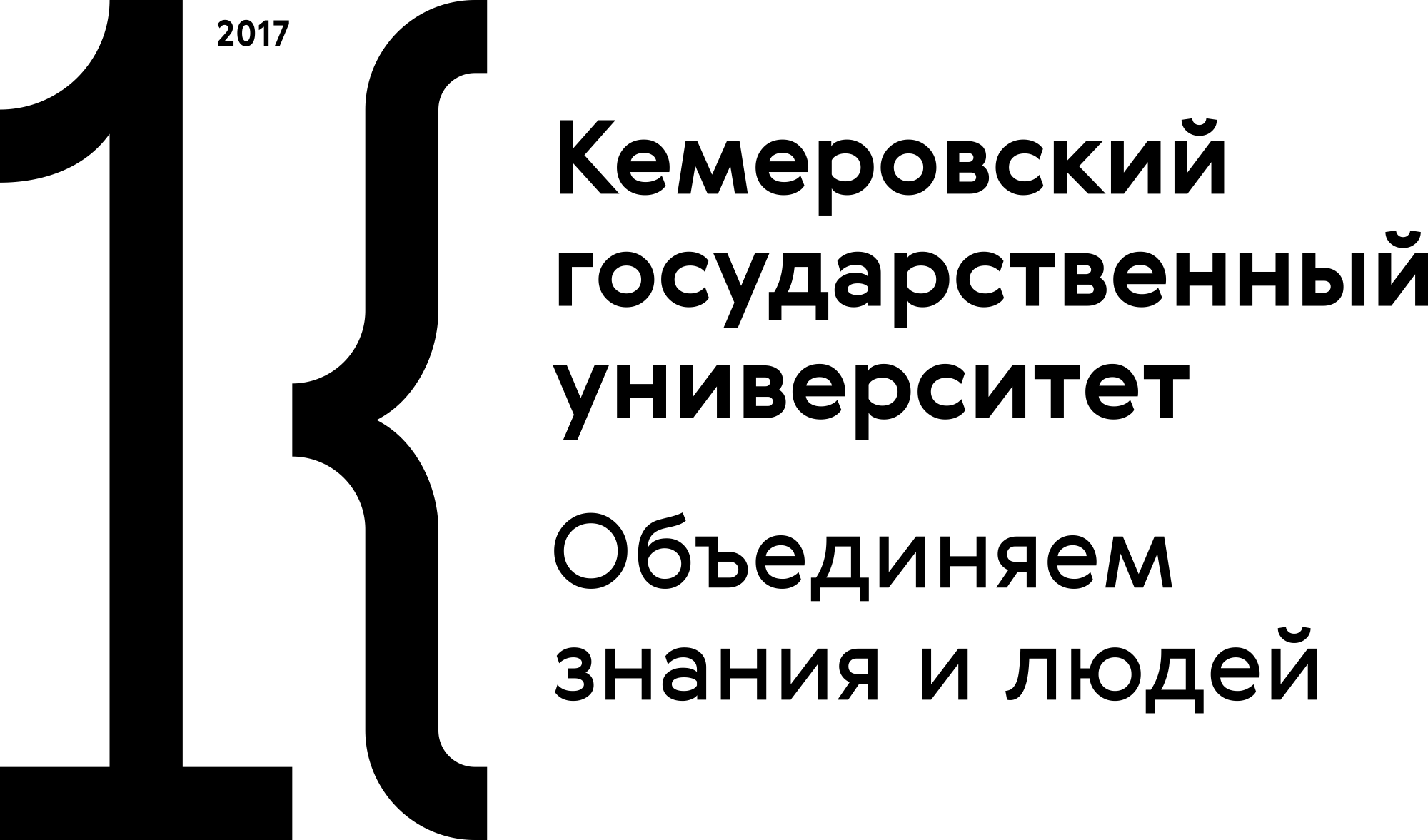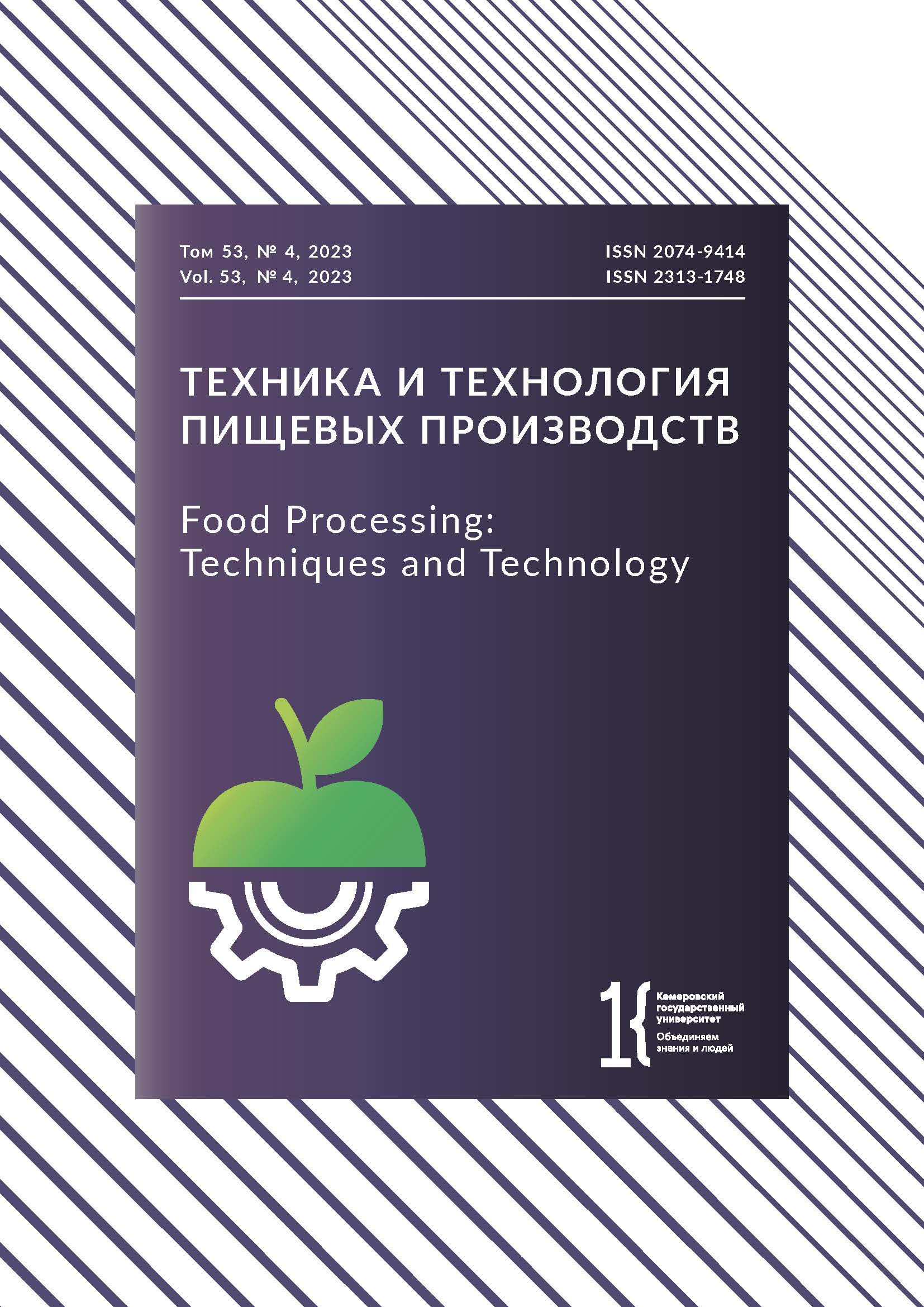Kemerovo, Russian Federation
Kemerovo, Kemerovo, Russian Federation
Kemerovo, Kemerovo, Russian Federation
Kemerovo, Kemerovo, Russian Federation
Moscow, Russian Federation
Numerous adverse factors may violate the human immune system and trigger various diseases. Immune-response modulating agents, or immunomodulators, help the immune system to function properly. Biologically active substances extracted from medicinal plants are especially promising in this respect. The article reviews traditional and novel methods for extracting biologically active immune-response modulating agents from plant raw materials. The review covered articles published in English and Russian in 2019–2023 and indexed in Scopus, Web of Science, and eLIBRARY. Extraction efficiency depends on such factors as solvent, temperature, and particle size, but the method is the most important one. Traditional extraction methods include percolation, maceration, Soxhlet extraction, heat reflux extraction, and decoction. However, they are solvent-consuming and expensive. Modern extraction methods rely on carbon dioxide, microwave treatment, ultrasonic processing, and pressure. They proved quite efficient in extracting biologically active substances from ginseng (Panax ginseng). Carbon dioxide, or supercritical, extraction was able to isolate polyphenol quercetin from quince fruit (Cydonia oblonga) and other biologically active substances from alfalfa (Medicago sativa). Maceration with methanol was applied to meadowsweet (Filipendula ulmaria) while Soxhlet extraction proved especially effective with smoke tree (Cotinus coggygria), moorland spotted orchid (Dactylorhiza maculata), and greater butterfly-orchid (Platanthera chlorantha). Both traditional and novel extraction methods find their application in medicine and food science, where they yield plant extracts of biologically active immune-response modulating agents.
Medicinal plants, biologically active substances, immune-response modulating agents, extraction, extraction methods, solvent
1. Catanzaro M, Corsini E, Rosini M, Racchi M, Lanni C. Immunomodulators inspired by nature: A review on Curcumin and Echinacea. Molecules. 2018;23(11). https://doi.org/10.3390/molecules23112778
2. Davies LC, Rice CM, McVicar DW, Weiss JM. Diversity and environmental adaptation of phagocytic cell metabolism. Journal of Leukocyte Biology. 2019;105(1):37-48. https://doi.org/10.1002/JLB.4RI0518-195R
3. Xia S, Chen Q, Niu B. CD28: A new drug target for immune disease. Current Drug Targets. 2020;21(6):589-598. https://doi.org/10.2174/1389450120666191114102830
4. Qiu Y, Tu G, Ju M, Yang C, Luo Z. The immune system regulation in sepsis: From innate to adaptive. Current Protein and Peptide Science. 2019;20(8):799-816. https://doi.org/10.2174/1389203720666190305164128
5. Brillantes M, Beaulieu AM. Transcriptional control of natural killer cell differentiation. Immunology. 2019;156(2):111-119. https://doi.org/10.1111/imm.13017
6. Benagiano M, Bianchi P, D'Elios MM, Brosens I, Benagiano G. Autoimmune diseases: Role of steroid hormones. Best Practice and Research Clinical Obstetrics and Gynaecology. 2019;60:24-34. https://doi.org/10.1016/j.bpobgyn.2019.03.001
7. Koloski N, Jones M, Walker MM, Veysey M, Zala A, Keely S, et al. Population based study: Atopy and autoimmune diseases are associated with functional dyspepsia and irritable bowel syndrome, independent of psychological distress. Alimentary Pharmacology and Therapeutics. 2019;49(5):546-555. https://doi.org/10.1111/apt.15120
8. Dyshlyuk LS, Fedorova AM, Loseva AI, Eremeeva NI. Callus cultures of Thymus vulgaris and Trifolium pratense as a source of geroprotectors. Food Processing: Techniques and Technology. 2021;51(2):423-432. https://doi.org/10.21603/2074-9414-2021-2-423-432
9. Akharaiyi FC, Ehis-Eriakha CB, Olagbemide PT, Igbudu FH. Hyptis suaveolens L. leaf extracts in traditional health care systems. Foods and Raw Materials. 2023;11(2):293-299. https://doi.org/10.21603/2308-4057-2023-2-577
10. Milentyeva IS, Le VM, Kozlova OV, Velichkovich NS, Fedorova AM, Loseva AI, et al. Secondary metabolites in in vitro cultures of Siberian medicinal plants: Content, antioxidant properties, and antimicrobial characteristics. Foods and Raw Materials. 2021;9(1):153-163. https://doi.org/10.21603/2308-4057-2021-1-153-163
11. Nilius B, Appendino G. Spices: The savory and beneficial science of pungency. In: Nilius B, Amara SG, Lill R, Offermanns S, Gudermann T, Petersen OH, et al., editors. Reviews of physiology, biochemistry and pharmacology. Vol. 164. Cham: Springer; 2013. pp. 1-76. https://doi.org/10.1007/112_2013_11
12. Porwal O, Ozdemir M, Kala D, Anwer ET. A review on medicinal plants as potential sources of natural immunomodulatory action. Journal of Drug Delivery and Therapeutics. 2021;11(6):324-331. https://doi.org/10.22270/jddt.v11i6.5125
13. Asyakina LK, Fotina NV, Stepanova AA, Pozdnyakova AV, Prosekov AYu. Development of a technology for extraction of a complex of biologically active substances from in vitro root crops of medicinal plants. Storage and Processing of Farm Products. 2021;(3):95-104. (In Russ.). https://doi.org/10.36107/spfp.2021.228
14. Lainez-Cerón E, Ramírez-Corona N, López-Malo A, Franco-Vega A. An overview of mathematical modeling for conventional and intensified processes for extracting essential oils. Chemical Engineering and Processing - Process Intensification. 2022;178. https://doi.org/10.1016/j.cep.2022.109032
15. Abubakar AR, Haque M. Preparation of medicinal plants: Basic extraction and fractionation procedures for experimental purposes. Journal of Pharmacy and Bioallied Sciences. 2020;12(1):1-10. https://doi.org/10.4103/jpbs.JPBS_175_19
16. Rodríguez García SL, Raghavan V. Green extraction techniques from fruit and vegetable waste to obtain bioactive compounds - A review. Critical Reviews in Food Science and Nutrition. 2022;62(23):6446-6466. https://doi.org/10.1080/10408398.2021.1901651
17. Yan Z, Wang Z, Chen Y, Liu C, Liu Y, Li R, et al. Preparation of lignin nanoparticles via ultra-fast microwave-assisted fractionation of lignocellulose using ternary deep eutectic solvents. Biotechnology and Bioengineering. 2023;120(6):1557-1568. https://doi.org/10.1002/bit.28373
18. Jha AK, Sit N. Extraction of bioactive compounds from plant materials using combination of various novel methods: A review. Trends in Food Science and Technology. 2022;119:579-591. https://doi.org/10.1016/j.tifs.2021.11.019
19. Antony A, Farid M. Effect of temperatures on polyphenols during extraction. Applied Sciences. 2022;12(4). https://doi.org/10.3390/app12042107
20. Fonmboh DJ, Abah ER, Fokunang TE, Herve B, Teke GN, Rose NM, et al. An overview of methods of extraction, isolation and characterization of natural medicinal plant products in improved traditional medicine research. Asian Journal of Research in Medical and Pharmaceutical Sciences. 2020;9(2):31-57. https://doi.org/10.9734/ajrimps/2020/v9i230152
21. Nekkaa A, Benaissa A, Mutelet F, Canabady-Rochelle L. Rhamnus alaternus plant: Extraction of bioactive fractions and evaluation of their pharmacological and phytochemical properties. Antioxidants. 2021;10(2). https://doi.org/10.3390/antiox10020300
22. Zhang Q-W, Lin L-G, Ye W-C. Techniques for extraction and isolation of natural products: A comprehensive review. Chinese Medicine. 2018;13. https://doi.org/10.1186/s13020-018-0177-x
23. Srivastava N, Singh A, Kumari P, Nishad JH, Gautam VS, Yadav M, et al. Advances in extraction technologies: isolation and purification of bioactive compounds from biological materials. In: Sinha RP, Häder D-P, editors. Natural bioactive compounds. Technological advancements. Academic Press; 2021. pp. 409-433. https://doi.org/10.1016/B978-0-12-820655-3.00021-5
24. López-Cruz R, Sandoval-Contreras T, Iñiguez-Moreno M. Plant pigments: Classification, extraction, and challenge of their application in the food industry. Food and Bioprocess Technology. 2023. https://doi.org/10.1007/s11947-023-03075-4
25. Setford PC, Jeffery DW, Grbin PR, Muhlack RA. Factors affecting extraction and evolution of phenolic compounds during red wine maceration and the role of process modelling. Trends in Food Science and Technology. 2017;69:106-117. https://doi.org/10.1016/j.tifs.2017.09.005
26. Atienza JJ, Segui DI, Arcigal R, Bracewell J, Dimasuay M, Bueno PR, et al. Specific analytical methods for the extraction of common phytochemical constituents of Vitex negundo Linn: A mini-review. Journal of Pharmacognosy and Phytochemistry. 2021;10(5):95-107. https://doi.org/10.22271/phyto.2021.v10.i5b.14226
27. Pawar S, Kamble V. Phytochemical screening, elemental and function group analysis of Vitex negundo L. leaves. International Journal of Pharmacy and Pharmaceutical Sciences. 2017;9(6):226-230. https://doi.org/10.22159/ijpps.2017v9i6.18093
28. Kapadia P, Newell AS, Cunningham J, Roberts MR, Hardy JG. Extraction of high-value chemicals from plants for technical and medical applications. International Journal of Molecular Sciences. 2022;23(18). https://doi.org/10.3390/ijms231810334
29. Khongthaw B, Chauhan PK, Dulta K, Kumar V, Ighalo JO. A comparison of conventional and novel phytonutrient extraction techniques from various sources and their potential applications. Journal of Food Measurement and Characterization. 2023;17:1317-1342. https://doi.org/10.1007/s11694-022-01697-4
30. Belokurov SS, Narkevich IA, Flisyuk EV, Kaukhova IE, Aroyan MV. Modern extraction methods for medicinal plant raw material (review). Pharmaceutical Chemistry Journal. 2019;53(6):559-563. https://doi.org/10.1007/s11094-019-02037-5
31. Duy LX, Toan TQ, Anh DV, Hung NP, Huong TTT, Long PQ, et al. Optimization of canthaxanthin extraction from fermented biomass of Paracoccus carotinifacuens 20181 VTP bacteria strain isolated in Vietnam. Foods and Raw Materials. 2021;9(1):117-125. https://doi.org/10.21603/2308-4057-2021-1-117-125
32. Dhara O, Prasanna Rani KP, Chakrabarti PP. Supercritical carbon dioxide extraction of vegetable oils: Retrospective and prospects. European Journal of Lipid Science and Technology. 2022;124(8). https://doi.org/10.1002/ejlt.202200006
33. Zakharenko AM, Kirichenko KYu, Vakhniuk IA, Golokhvast KS. Supercritical extraction technology of obtaining polyunsaturated acids from starfish (Lysastrosoma anthosticta Fisher, 1922). Food Processing: Techniques and Technology. 2021;51(4):753-758. https://doi.org/10.21603/2074-9414-2021-4-753-758
34. Prosekov AYu. Interfacial surface phenomena in the production of dispersed products with a foam structure: A review. Storage and Processing of Farm Products. 2001;(8):24-27. (In Russ.). https://elibrary.ru/YRXYBY
35. Quitério E, Grosso C, Ferraz R, Delerue-Matos C, Soares C. A critical comparison of the advanced extraction techniques applied to obtain health-promoting compounds from seaweeds. Marine Drugs. 2022;20(11). https://doi.org/10.3390/md20110677
36. Hu J, Guo Z, Glasius M, Kristensen K, Xiao L, Xu X. Pressurized liquid extraction of ginger (Zingiber officinale Roscoe) with bioethanol: An efficient and sustainable approach. Journal of Chromatography A. 2011;1218(34):5765-5773. https://doi.org/10.1016/j.chroma.2011.06.088
37. Hafizov SG, Musina ON, Hafizov GK. Extracting hydrophilic components from pomegranate peel and pulp. Food Processing: Techniques and Technology. 2023;53(1):168-182. (In Russ.). https://doi.org/10.21603/2074-9414-2023-1-2425
38. Mehta N, Jeyapriya S, Kumar P, Verma AK, Umaraw P, Khatkar SK, et al. Ultrasound-assisted extraction and the encapsulation of bioactive components for food applications. Foods. 2022;11(19). https://doi.org/10.3390/foods11192973
39. Carreira-Casais A, Otero P, Garcia-Perez P, Garcia-Oliveira P, Pereira AG, Carpena M, et al. Benefits and drawbacks of ultrasound-assisted extraction for the recovery of bioactive compounds from marine algae. International Journal of Environmental Research and Public Health. 2021;18(17). https://doi.org/10.3390/ijerph18179153
40. Gao Y, Wang S, Dang S, Han S, Yun C, Wang W, et al. Optimized ultrasound-assisted extraction of total polyphenols from Empetrum nigrum and its bioactivities. Journal of Chromatography B. 2021;1173. https://doi.org/10.1016/j.jchromb.2021.122699
41. Astráin-Redín L, Ciudad-Hidalgo S, Raso J, Condón S, Cebrián G, Álvarez I. Application of high-power ultrasound in the food industry. In: Karakuş S, editor. Sonochemical reactions. IntechOpen; 2019. https://doi.org/10.5772/intechopen.90444
42. Liang Q, Zhang J, Su X, Meng Q, Dou J. Extraction and separation of eight ginsenosides from flower buds of Panax ginseng using aqueous ionic liquid-based ultrasonic-assisted extraction coupled with an aqueous biphasic system. Molecules. 2019;24(4). https://doi.org/10.3390/molecules24040778
43. Lee J-H, Ko M-J, Chung M-S. Subcritical water extraction of bioactive components from red ginseng (Panax ginseng C.A. Meyer). The Journal of Supercritical Fluids. 2018;133:177-183. https://doi.org/10.1016/j.supflu.2017.09.029
44. Mok I-K, Jung H, Kim H, Kim D. Biotransformation of ginsenosides from Korean wild-simulated ginseng (Panax ginseng C.A. Mey.) using the combination of high hydrostatic pressure, enzymatic hydrolysis, and sonication. Food Bioscience. 2023;53. https://doi.org/10.1016/j.fbio.2023.102687
45. Zhao J-L, Zhang M, Zhou H-L. Microwave-assisted extraction, purification, partial characterization, and bioactivity of polysaccharides from Panax ginseng. Molecules. 2019;24(8). https://doi.org/10.3390/molecules24081605
46. Pilařová V, Kuda L, Vlčková HK, Nováková L, Gupta S, Kulkarni M, et al. Carbon dioxide expanded liquid: an effective solvent for the extraction of quercetin from South African medicinal plants. Plant Methods. 2022;18. https://doi.org/10.1186/s13007-022-00919-6
47. Wrona O, Rafińska K, Walczak-Skierska J, Możeński C, Buszewski B. Extraction and determination of polar bioactive compounds from alfalfa (Medicago sativa L.) using supercritical techniques. Molecules. 2019;24(24). https://doi.org/10.3390/molecules24244608
48. Cholet J, Decombat C, Vareille-Delarbre M, Gainche M, Berry A, Ogéron C, et al. Comparison of the anti-inflammatory and immunomodulatory mechanisms of two medicinal herbs: Meadowsweet (Filipendula ulmaria) and harpagophytum (Harpagophytum procumbens). International Journal of Plant, Animal and Environmental Sciences. 2019;9(3):145-163.
49. Sukhikh S, Asyakina L, Korobenkov M, Skrypnik L, Pungin A, Ivanova S, et al. Chemical composition and content of biologically active substances found in Cotinus coggygria, Dactylorhiza maculata, Platanthera chlorantha growing in various territories. Plants. 2021;10(12). https://doi.org/10.3390/plants10122806












